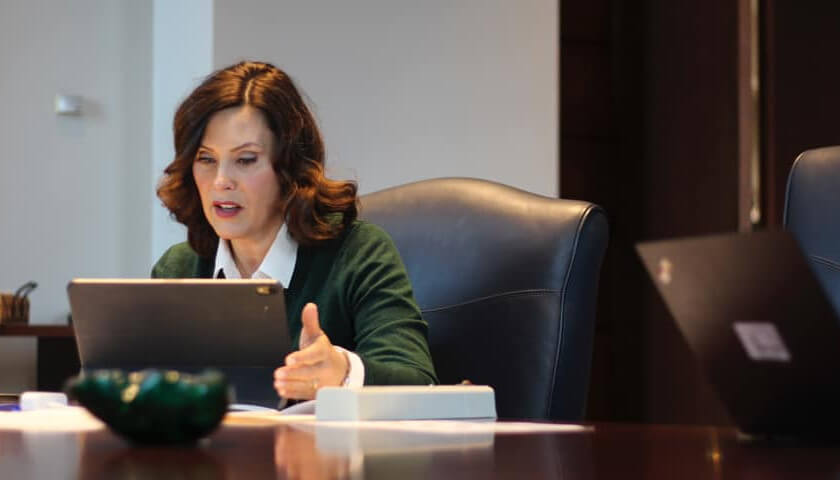by Bruce Walker
Gov. Gretchen Whitmer issued an executive order to reconnect residents’ water services that had been shut off.
The governor signed the $2 million Water Restart Grant Program on Saturday. The suspension of the public utility shut-offs were mandated effective immediately.
“This is a critical step both for the health of families living without a reliable water source, and for slowing the spread of the Coronavirus,” Whitmer said in a statement. “We continue to work to provide all Michiganders – regardless of their geography or income level – the tools they need to keep themselves and their communities protected.”
According to the order: “Now more than ever, the provision of clean water to residences is essential to human health and hygiene, and to the public health and safety of this state. Correspondingly, many water utilities have already suspended water shutoffs during this difficult time. Due to the vital need to ensure that Michigan residents have access to clean water at home during the COVID-19 pandemic, it is reasonable and necessary to require the restoration of clean water to residences across the State of Michigan throughout this state of emergency.”
Public water suppliers must identify homes where water has been shut off either because of nonpayment or damaged infrastructure. The order also requires reporting and accountability.
According to the governor’s office: “The order is effective for the duration of the COVID-19 emergency. It does not absolve anyone from responsibility for past-due bills.”
The Michigan Department of Environment, Great Lakes, and Energy (EGLE) is tasked with overseeing the Water Restart Grant Program. EGLE will provide limited grants to communities based on available funds.
Grants will be provided to high-risk areas. Requirements for the grants will include the following:
• Communities must provide a preliminary spending plan, including the estimated number of homes to be reconnected and estimated average cost per home, prior to the grant being initiated.
• If lead lines are being replaced as part of the reconnection, the entire line must be replaced.
• EGLE will reimburse up to $5,000 for reconnection, line replacement, and restoration per home. Exceptions to the cap can be requested for homes needing more extensive work. Exceptions must be authorized by EGLE.
• The community must assure that the plumbers conduct appropriate flushing and provide communication to residents on the importance of flushing and use of filters if needed.
• A 25 percent local match is required.
• Grant funds will be provided on a reimbursement basis upon receipt of appropriate supporting documentation.
“Michiganders need clean water in their homes now more than ever to protect their health and slow the spread of COVID-19 by washing their hands,” Robert Gordon, director of the Michigan Department of Health and Human Services (MDHHS), said in a press statement. “MDHHS is pleased to work to help connect families to critical services and remove barriers to good health practices.”
The governor’s office advises those reconnecting to municipal water must first thoroughly flush stagnant water pipes and clean filter screens to remove accumulations of lead and other bacteria that can accumulate in stagnant water.
“We are also working with water plant operators to ensure continuation of safe, reliable water under various scenarios,” Liesl Clark, EGLE director, said in a press statement. “Keeping water flowing, and restoring service where necessary, is vital to defending our state’s residents against COVID-19.”
– – –
Bruce Walker is a regional editor at The Center Square.





